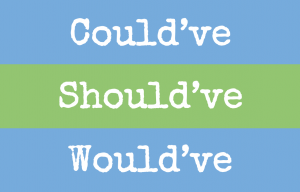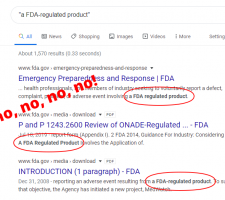 Pop quiz: When you want to spell out the contraction for words like could’ve, should’ve, would’ve, is it:
Pop quiz: When you want to spell out the contraction for words like could’ve, should’ve, would’ve, is it:
A. Could of, should of, would of
B. Could have, should have, would have
The correct answer is B. Always B. Never, ever, ever A.
I get that the “‘ve” in these words sounds like “of.” I really do. But this is the mischievous English language we’re talking about. English likes to play practical jokes on you. So forget about what it sounds like. Let’s break down the grammar behind it.
It’s a verb thing
Did you know that could, should, and would are all technically verbs? It’s true! They are what are known as helping or auxiliary verbs.
If you want to get even more specific, they are modal auxiliary verbs, which “help” the main verb by expressing the likelihood of an action. Words like can/could, shall/should, will/would, ought, and may/might/must are all modal auxiliary verbs. And when you pair them with other verbs, it forms a verb phrase.
- I can use my quarantine time to binge watch Netflix shows or catch up on reading some great books.
- I would change out of my pajamas, but it’s already 4 p.m., so why bother?
- I should wear a mask when I go shopping to protect myself and others from COVID-19.
- I might drink a glass of wine tonight. (Wait, who am I kidding? I WILL drink a glass of wine tonight! I deserve it after the week I’ve had!)
“Have” is another type of helping or auxiliary verb that helps to express tense. “Of,” on the other hand, is a preposition that doesn’t belong in most verb phrases.
- I have watched three episodes of Tiger King so far. (Not “I of watched…”)
- I have volunteered my time on some side projects while I’m waiting to go back to work. (Not “I of volunteered…”)
- I have forgotten what day it is more than once so far. (Not “I of forgotten…”)
Stringing them all together—could’ve should’ve would’ve
The neat thing about helping verbs is that you can string a bunch of them together to add nuance to your meaning. That’s where could’ve, should’ve, and would’ve come in. They are simply contractions that result when you pair the helping verbs could, should, and would with the helping verb “have” to indicate something that might have, upon reflection or in different circumstances, been done differently in the past. (Or when you just want to make an excuse for something that you might have done, but didn’t.)
- I could’ve (could have) shared my secret stash of quarantine snacks with my family, but I’m stingy.
- I should’ve (should have) stocked up on toilet paper, but who knew it would become such a precious commodity?
- I would’ve (would have) filed for unemployment online if the website had been working.
So there you have it. Could’ve should’ve would’ve. They are always spelled out as could have, should have, would have. Please banish could of, should of, and would of from your vocabulary!
(Please subscribe to the Sloppy Bullets blog to receive notifications of new posts!)


